

Simple Education essential guides Advances in Coronary Physiology is the premiere international course in coronary physiology. This is the 5th year this 5* rated course has been run which has quickly become established as the premier global interventional course in state-of-the-art coronary physiology. The course provides all you need to know to understand coronary physiology from learning the background basics of coronary physiology, to understanding the clinical trial data and implementation of coronary physiology in the catheter laboratory.
An online teaching resource, the Simple Education application, will give you access to video content from the days' talks, and a raft of other online educational and learning resources which continue your learning experience and connect you with the interventional community after the course finishes.
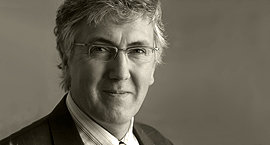 |
Prof Javier EscanedClinico San Carlos,Madrid |
 |
Dr Justin DaviesImperial College,London |
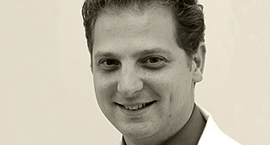 |
Dr Allen JeremiasSt. Francis Hospital,NY, USA |
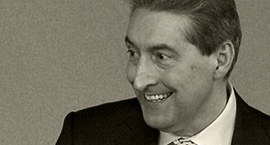 |
Prof Carlo Di MarioUniversity Hospital Careggi,Florence, Italy |
Course Agenda: Monday 12th June 2017
Tuesday 13th June 2017
|

Dr Justin Davies is a clinical academic and consultant interventional cardiologist at the National Heart and Lung Institute, Imperial College London. After training at Imperial College, he won a prestigious BHF research fellowship to study in arterial haemodynamics. Since then he has continued to work on the development of mathematical algorithms to aid understanding of large artery physiology and to develop new tools to assess arterial disease. The holder of several patents, he has published widely in the field of hypertension, coronary and large artery physiology and is the winner of many national and international awards. He has several international collaborations, and is the developer of iFR and the co-principal investigator of the ADVISE studies, the DEFINE-FLAIR, ORBITA and DEFINE-PCI studies. Justin also has an interest in renal denervation, and has lead the first-in-man studies to evaluate the safety of this technique to patients with chronic systolic heart failure (REACH studies).
 Prof Javier Escaned is Consultant Interventional Cardiologist / Associate Professor and Head of Section, Cardiology Department, Hospital Clinico San Carlos (Madrid, Spain). He trained as a cardiologist the United Kingdom (Queen Elizabeth University Hospital, Birmingham and Walsgrave Hospital, Coventry) before moving to the Thoraxcenter / Rotterdam (The Netherlands), where he obtained his PhD degree in 1994. Author of more than 200 scientific articles, books and book chapters on different aspects of interventional cardiology, imaging and physiology, his latest contribution is the textbook “Coronary Stenosis. Imaging, Structure and Physiology”, co-edited with Patrick W Serruys. He is currently co-director or EuroPCR. Some of his additional interests are philosophy, education and music.
Prof Javier Escaned is Consultant Interventional Cardiologist / Associate Professor and Head of Section, Cardiology Department, Hospital Clinico San Carlos (Madrid, Spain). He trained as a cardiologist the United Kingdom (Queen Elizabeth University Hospital, Birmingham and Walsgrave Hospital, Coventry) before moving to the Thoraxcenter / Rotterdam (The Netherlands), where he obtained his PhD degree in 1994. Author of more than 200 scientific articles, books and book chapters on different aspects of interventional cardiology, imaging and physiology, his latest contribution is the textbook “Coronary Stenosis. Imaging, Structure and Physiology”, co-edited with Patrick W Serruys. He is currently co-director or EuroPCR. Some of his additional interests are philosophy, education and music.
 Dr Sayan Sen is a Consultant Interventional Cardiologist and
NIHR Clinical Lecturer at Imperial College London. His research
interests are dedicated to improving patient care. As such, they
include the development and validation of new diagnostic tools,
determining how the design of comparative efficacy studies can
affect clinical use of competing therapies and the development
and application of tools that permit a more patient centered
approach to therapy. He studied Medicine at University College London (UCL), achieving a First Class (Honours) Bachelor of Science degree in Medical Sciences & Neuroscience in 2000 and graduated with distinction (Surgery) in his final MBBS Examinations in 2003. He trained as a junior doctor on the Hammersmith and UCL medical rotations prior to being appointed as a Cardiology Specialist Registrar in the North West London region in April 2006 and a NIHR clinical Lecturer in 2013. One of the themes of his research is to determine the need for potent vasodilators when assessing coronary stenosis severity. Working with Dr Justin Davies, Dr Sen’s PhD introduced and developed a new technique of stenosis evaluation (the instantaneous wave-free ratio, iFR). In addition to being the Principal Investigator of several first in man physiological studies, he was also the Medical Director of the DEFINE FLAIR trial – a global multi-centre randomized study that has recently demonstrated the non-inferiority of iFR to FFR for revascularisation decision-making in over 2500 patients.
Dr Sayan Sen is a Consultant Interventional Cardiologist and
NIHR Clinical Lecturer at Imperial College London. His research
interests are dedicated to improving patient care. As such, they
include the development and validation of new diagnostic tools,
determining how the design of comparative efficacy studies can
affect clinical use of competing therapies and the development
and application of tools that permit a more patient centered
approach to therapy. He studied Medicine at University College London (UCL), achieving a First Class (Honours) Bachelor of Science degree in Medical Sciences & Neuroscience in 2000 and graduated with distinction (Surgery) in his final MBBS Examinations in 2003. He trained as a junior doctor on the Hammersmith and UCL medical rotations prior to being appointed as a Cardiology Specialist Registrar in the North West London region in April 2006 and a NIHR clinical Lecturer in 2013. One of the themes of his research is to determine the need for potent vasodilators when assessing coronary stenosis severity. Working with Dr Justin Davies, Dr Sen’s PhD introduced and developed a new technique of stenosis evaluation (the instantaneous wave-free ratio, iFR). In addition to being the Principal Investigator of several first in man physiological studies, he was also the Medical Director of the DEFINE FLAIR trial – a global multi-centre randomized study that has recently demonstrated the non-inferiority of iFR to FFR for revascularisation decision-making in over 2500 patients.

Dr Rasha Al-Lamee is an Interventional Cardiologist at Imperial College Healthcare NHS Trust in London, UK. Dr Al-Lamee’s research interests are complex coronary intervention, coronary physiology and invasive intravascular assessment. She is currently leading the ORBITA trial as part of a PhD programme under the supervision of Dr Justin Davies and Professor Darrel Francis. At Imperial College she is actively involved in the development and recruitment for a number of multi-centre clinical trials. Dr Al-Lamee has over 30 peer-reviewed publications and has presented at international Cardiology conferences worldwide throughout her clinical career. She studied at the University of Oxford and University College London. She went onto complete her training as a junior doctor on the Barts and the London Medical rotation before being appointed as a Specialist Registrar on the North West London Cardiology rotation in 2006. Dr Al-Lamee has eleven years of Cardiology experience and completed three years of Interventional Fellowship training at Hammersmith Hospital in London. She also spent one year training as an Interventional Fellow under the supervision of Professor Antonio Colombo in Milan. She completed specialist training in Cardiology in 2013.

Dr Christopher Cook is a Medical Research Council Clinical Fellow at Imperial College London, undertaking a PhD in coronary physiology under the supervision of Dr Justin Davies. He studied Medicine at University College London (UCL) and graduated with Distinction (Clinical Medicine and Clinical Sciences) in his final MBBS Examinations in 2009. He achieved a First Class (Honours) Bachelor of Science degree in Physiology undertaking a period of research at The Hatter Cardiovascular Institute. He was awarded ‘The Dean’s List’ for outstanding performance in the Faculty of Life Sciences. In total he was awarded 17 prizes including the prestigious Gold Medal Medicine (proxime accessit). In 2014, he was awarded the Imperial Valve and Cardiovascular Course Young Investigator Prize. In 2015 he was awarded the inaugural EuroPCR’s Got Talent Award. In 2017 he was elected onto the EuroPCR Clinical Programme Committee.

Prof Carlo Di Mario is currently Professor of Cardiology, University of Florence and Director of the Structural Interventional Cardiology Division of the University Hospital Careggi, Florence, Italy. Previous posts included 15 years as Professor of Clinical Cardiology at Imperial College of Sciences, Medicine & Technology, London and Consultant Cardiologist at the Royal Brompton Hospital. He also practiced at the San Raffaele Hospital, Milan, Italy. He trained in Cardiology at the University of Padova, Italy, but he soon moved for a more in-depth interventional trying at the Thoraxcentre of Rotterdam, the Netherlands, where he also completed a PhD in Intracoronary Ultrasound Imaging and Doppler. He maintains an active clinical involvement performing more than 200 PCI per year in the last 15 years in London with the special interest in the treatment of chronic total occlusions, bifurcations, calcified lesions and diffuse disease. He is a regular TAVI operator and certified implanter for the Medtronic Evolute R and Edwards Sapien 3 transcatheter aortic valves. He participated in more than 130 MitraClip implantations in London and in the last few months back in Italy has also started transcatheter mitral treatments with clips, valves and direct annuloplasty. Professor Di Mario pioneered the use of intracoronary Doppler, pressure measurement, ultrasound and optical coherence tomography. These techniques have become the gold standard for physiological assessment of lesion severity and have revolutionised the technique of stent implantation with the use of high pressure dilatation which led to the universal application of this method in interventional cardiology. He is now applying these intravascular techniques for the guidance of implantation of fully bioabsorbable stents and optimal stent apposition across bifurcations and in complex lesions. He has led or participated in studies and trials to improve the technical success of recanalisation of chronic total occlusion and demonstrate its clinical usefulness. He cooperated with Dr Davies to the validation of iFR to assess lesion severity and discriminate the contribution of individual lesions, and with Dr Lyon in the intracoronary delivery of SERCA-2 genes via adenoviral vectors in the CUPID2 trial. He was Principal Investigator of the CARESS in AMI trial, a large multicentre trial showing that patients who receive fibrinolytic therapy for ST-elevation myocardial infarction benefit from early angioplasty. This trial and a subsequent meta-analysis have led to a change in the European Society of Cardiology and AHA/ACC Guidelines for treatment of STEMI patients. He is the PI and main recruiter of the Disrupt-CAD study with coronary lithotripsy delivered via dedicated balloons, due to be reported at ACC March 2017.
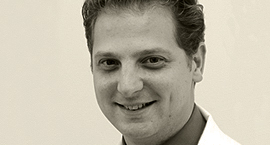
Dr Allen Jeremias is the Director of Interventional Cardiology Research and Associate Director of the Cardiac Catheterization Laboratory at St. Francis Hospital, Roslyn, NY. He was previously an Associate Professor and the Director of the Cardiac Catheterization Laboratory at Stony Brook University Medical Center. He is also a member of the Cardiovascular Research Foundation, New York, where he currently serves as the Director of the Physiology Core Laboratory.
Dr Jeremias earned his medical degree at Heinrich-Heine-University School of Medicine in Düsseldorf, Germany, and a Master of Science degree at Harvard Medical School. He completed his Medical training at The Cleveland Clinic Foundation, Stanford University School of Medicine, as well as Beth Israel Deaconess Medical Center, Harvard Medical School.
Dr Jeremias is board certified in cardiovascular medicine and interventional cardiology and is a Fellow of the American College of Cardiology as well as the Society for Cardiovascular Angiography and Interventions. Dr Jeremias has numerous publications in the area of interventional cardiology and is the editor of the medical text Cardiac Intensive Care. He is the author of Your Personal Guide to Angioplasty, a patient-centered book focusing on coronary artery disease and various treatment options. He also is the recipient of numerous awards, including Castle Connolly’s Top Doctors: New York Metro Area, 2009 – 2016.
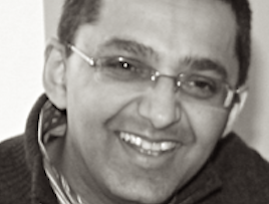
Prof Rajesh Kharbanda graduated BSc Medical Sciences (1st) in 1989, and MBChB from Edinburgh Medical School, Scotland in 1991. After training in Edinburgh and Glasgow, he commenced Specialist Cardiology Training in North West London in 1995. He completed his PhD in Clinical Cardiovascular Pharmacology at University College London in 2001. He was appointed British Heart Foundation Clinical Lecturer at the University of Cambridge 2001-2004, and completed clinical and academic training at the Addenbrooke's and Papworth Hospitals. He held an Interventional Fellowship at Toronto General Hospital, University of Toronto 2004-2005. He was appointed Consultant Interventional Cardiologist at the Royal Brompton and Harefield NHS Trust in 2006 and since 2007 at John Radcliffe Hospital, Oxford University Hospitals. His clinical practice is general cardiology with a focus on coronary intervention and TAVI. He and has developed an established clinical research programme, focussing on coronary physiology, ischemia-reperfusion injury and cardio-protection. His main areas of ongoing research are on how to further optimise PCI outcomes in ACS with a focus on the microcirculation assessed by coronary physiology. The Oxford BRC, and the Radcliffe Department of Medicine, University of Oxford support this work. He has published widely, including original research publications reviews and invited editorials.

Dr Sukhjinder Nijjer is a Consultant Cardiologist with a specialist interest in Coronary Intervention and the treatment of coronary artery disease. He works at both Chelsea & Westminster NHS Foundation Trust and Imperial College Healthcare NHS Trust. Dr Nijjer is also an Honorary Clinical Senior Lecturer at Imperial College.
He has clinical research interests in coronary physiology and the treatment of acute coronary syndromes. He has a PhD awarded by Imperial College London in coronary blood flow and the use of stenting to treat complex stenoses. Clinically, he is specialises in interventional cardiology and he is skilled in coronary intervention and the application of coronary physiology and intravascular imaging. He has expertise in anti-platelets, optical coherence tomography and CT coronary angiography. He has specific research interests in coronary artery physiology and clinical trial design, and is working at the forefront of innovation in physiological assessment for coronary disease. He has presented his PhD research at the leading cardiology conferences around the world, including the European Society of Cardiology (ESC), Transcatheter Cardiovascular Therapeutics (TCT) and EuroPCR. He has won many awards and has over 70 high impact publications.
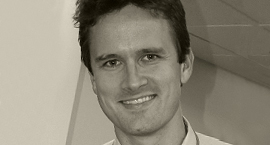
Dr Ricardo Petraco is a NIHR Lecturer in Cardiology at Imperial College London, with a research interest in coronary physiology and interventional cardiology. He is also a Cardiology Specialist Registrar and Interventional Fellow at the Imperial College NHS Trust. After graduating in Brazil, he undertook his Cardiology training in leading UK centres, including the Royal Brompton Hospital, St Mary’s hospital and, currently, Hammersmith Hospital. He has been working with the coronary physiology group at Imperial since 2010 on the development of the novel instantaneous wave-Free Ratio (iFR). Dr Petraco’s work with iFR has led to the proposition of the Hybrid iFR-FFR approach and has established iFR’s close relationship with coronary flow reserve (CFR). Throughout his career, he has secured many research grants - CNPq grant for scientific initiation in Brazil (twice, 2000 and 2001); Imperial College Charity grant (2010); British Heart Foundation CRTF grant (2011) and Academy of Medical Sciences lecturer grant (2016) – and has published extensively in the field of coronary physiology. His interests in computer programming has led to the development of a software for automated analysis of coronary haemodynamics signals which is been used by many leading centres in the world. He has also proposed an algorithm for iFR calculation without the need for an ECG signal. His current research interests are on the development of methodologies to assess stenosis severity in situations of haemodynamic instability and on the understanding of how medical therapies modulate coronary resistance and flow.
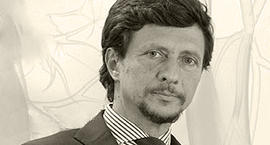
Prof Flavio Ribichini is Professor of Cardiovascular Medicine at the University of Verona and Director of the Cardiovascular Interventional Unit at the University Hospital. He teaches at the School of Medicine of the Univeristy of Verona at different courses, medical students, nurses, physiotherapists, residents of the School of Cardiology and PhD students. Director of the PhD School of Life and Health Sciences of the University of Verona. Member of the Task Force for Guidelines in Myocardial revascularization of the European Society of Cardiology. Member of the Editorial Board of the European Heart Journal since 2010. Member of the European Rotablator Club, the European Bifurcation Club and the European Expert group on Impella circulatory assistance. He is coordinator, Principal Investigator or member of the steering committees of several clinical trials. He is also the author of over 200 full publications on clinical and basic cardiovascular research in peer reviewed scientific journals available on PubMed.

Prof Habib Samady trained in general cardiology, nuclear cardiology and interventional cardiology at Yale University School of Medicine from 1994 to 1999. He was Assistant Professor of Medicine at University of Virginia from 1999-2003 and Clinical Associate Professor of Medicine at Eastern Virginia Medical School from 2003-2005. He joined the Division of Cardiology at Emory University in 2005. In 2009, he became Professor of Medicine and in 2011, Director of Interventional Cardiology at Emory University and Director of the Cardiac Catheterization Laboratory of Emory University Hospital. He has supervised and participated in the training of over 60 interventional cardiology fellows and over 100 general cardiology fellows. He has received several outstanding teaching awards. Dr. Samady has an actively funded clinical and translation research program (including from the National Institute of Health, the American Heart Association and industry) to investigate 1) hemodynamic mechanisms associated with progression of human coronary atherosclerosis 2) evaluation of pharmaceutical agents for treatment of coronary microvascular disease, endothelial dysfunction, coronary vasospasm and non obstructive atherosclerosis 3) biomechanics of permanent and Bioresorbable coronary vascular devices. These programs involve collaborations with Biomedical Engineering at Georgia Institute of Technology, Emory Vascular Biology and Emory Biomathematics. Dr. Samady is Deputy Editor of JACC Cardiovascular Interventions, is on the editorial board of numerous cardiovascular journals, and is extensively published in the fields of intravascular imaging, coronary physiology, atherosclerosis assessment and stent biomechanics.
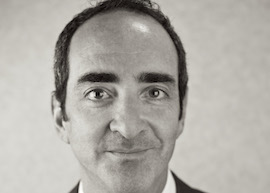
Dr Bruce Samuels is an interventional cardiologist on staff at Cedars- Sinai Medical Center (CSMC) in Los Angeles, California. Dr. Samuels completed his medical studies at Albert Einstein College of Medicine in New York before returning to Southern California to complete his residency and chief residency in Internal Medicine at Harbor-UCLA Medical Center. At CSMC, he trained in both general and interventional cardiology before joining the medical staff there. In addition to his clinical practice in coronary intervention, Dr. Samuels has actively participated in numerous interventional trials including IVUS guided therapy, functional measurement and microvascular disease. He is also working closely with the Women’s Heart Center based at CSMC, working as the lead interventionalist of the active coronary reactivity research there. As co-chair of a 30 day readmissions task force, he has helped to shape policy for CSMC in its efforts to improve quality delivery of care. He has frequently been invited as faculty to many scientific meetings and is a sought after speaker for numerous peer educational platforms. Dr. Samuels is a fellow of the American College of Cardiology and is Board Certified in Internal Medicine, Cardiovasular Diseases, and Interventional Cardiology. He is married with three sons; his outside interests include contemporary art and long distance running.

This essential guide is an educational activity intended for an international audience, specifically interventional cardiologists and cardiologists. However, other healthcare professionals involved in the care of coronary artery disease (CAD) patients will also find this topical.
This 2 day course general admission pass which covers registration, meals, and refreshments. After course free access to online course resources including powerpoint images, course videos, and links to other Simple Education resources.
Advances in Coronary Physiology course provides all you need to know to understand the basics of coronary physiology and what you need to do to implement coronary physiology into the cardiac catheter laboratory.
Understanding the background of coronary physiology
Understanding of coronary blood flow regulation in unobstructed and obstructed coronary arteries
Learn what you need to know to implement iFR and FFR in your laboratory
Learn about the guidelines for appropriate use and reimbursement